Royal jelly contains nutrients with anti-inflammatory and antioxidant properties that might offer benefits for overall health, including immune support and relief from menopausal symptoms.
Produced by honeybees, royal jelly is a creamy substance used to nourish queen bees and their larvae.
It’s commonly marketed as a dietary supplement for a range of physical complaints and chronic conditions.
Although it has a long history in traditional remedies, its role in conventional Western medicine remains debated.
Below are 12 possible benefits associated with royal jelly.
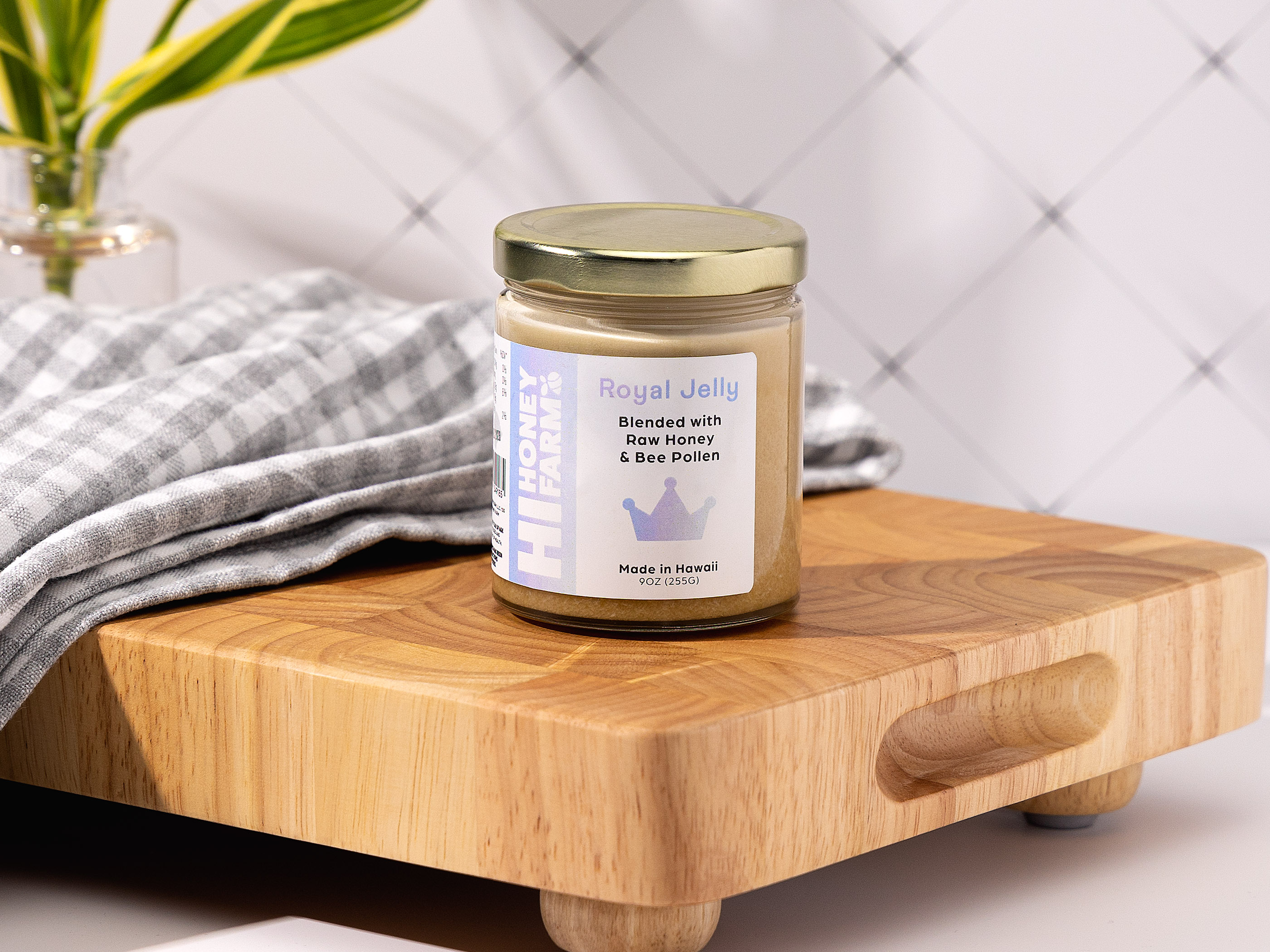
1. Packed with Various Nutrients
Royal jelly is made up of water, carbohydrates, proteins and lipids (1).
The exact chemical profile of royal jelly is not fully mapped, but its beneficial effects are believed to come from distinct proteins and fatty acids (1).
Notable components include nine glycoproteins known collectively as major royal jelly proteins (MRJPs) and fatty acids such as trans-10-Hydroxy-2-decenoic acid and 10-Hydroxydecanoic acid.
Royal jelly also supplies several B vitamins and trace minerals.
Keep in mind that nutrient content can differ substantially across royal jelly sources (1).
Some commonly found vitamins in royal jelly are:
- Thiamine (B1)
- Riboflavin (B2)
- Pantothenic acid (B5)
- Pyridoxine (B6)
- Niacin (B3)
- Folic acid (B9)
- Inositol (B8)
- Biotin (B7)
These nutrients could underlie some of royal jelly’s proposed health effects, but more study is necessary to fully understand this unique substance.
Summary Royal jelly contains water, carbs, protein, fats, B vitamins and trace minerals. Its distinctive proteins and fatty acids may explain some of its possible health benefits.
2. May Offer Antioxidant and Anti-Inflammatory Benefits
Royal jelly is often promoted for its potential to reduce inflammation and oxidative damage.
In various in vitro and animal experiments, certain amino acids, fatty acids and phenolic compounds in royal jelly show substantial antioxidant activity.
Additionally, several test-tube studies report decreased production of pro-inflammatory molecules from immune cells exposed to royal jelly.
While these findings are encouraging, human research is sparse. More robust clinical trials are required to confirm whether royal jelly can treat inflammation in people.
Summary Animal and lab studies suggest royal jelly may act as an antioxidant and anti-inflammatory agent, but comprehensive human data are lacking.
3. May Lower Heart Disease Risk by Affecting Cholesterol
Both animal and human studies suggest royal jelly may improve cholesterol profiles, potentially lowering cardiovascular risk.
The mechanism is not fully understood, but certain proteins in royal jelly might help reduce cholesterol levels.
For example, a 12-week study in rabbits found that royal jelly supplementation significantly decreased total and LDL (“bad”) cholesterol by 28% and 23%, respectively.
In a small one-month human trial, participants taking about 3 grams of royal jelly daily experienced an 11% drop in total cholesterol and a 4% decline in LDL cholesterol.
Conversely, another small human study found no meaningful changes in cholesterol compared with placebo.
Although these results are promising, larger and better-designed studies are needed to clarify royal jelly’s effects on heart health.
Summary Some animal and human trials have shown cholesterol reductions with royal jelly, but additional research is required to confirm these outcomes.
4. May Help Wound Healing and Skin Repair
Royal jelly—applied topically or taken orally—may aid wound healing and inflammatory skin conditions.
It exhibits antibacterial activity, which may help keep wounds free from infection.
An animal study reported increased collagen production in rats given royal jelly extract; collagen is crucial for skin repair.
A lab study found enhanced tissue-repair capacity in human cells treated with royal jelly.
However, a more recent human trial observed no significant difference in healing diabetic foot ulcers when treated topically with royal jelly versus control.
Overall, additional research is necessary to establish royal jelly’s effectiveness in wound healing and tissue regeneration.
Summary Some studies indicate royal jelly may boost proteins involved in tissue repair, but further research is needed.
5. Certain Proteins May Reduce Blood Pressure
Royal jelly might help protect cardiovascular health by lowering blood pressure.
Several in vitro studies suggest that particular proteins in royal jelly relax smooth muscle cells in blood vessels, leading to reduced blood pressure.
An animal study of a supplement combining royal jelly with other bee products reported a marked blood pressure reduction, though the specific contribution of royal jelly is unclear.
Further research is required to better understand royal jelly’s potential effects on blood pressure.
Summary Early findings show that proteins in royal jelly may reduce blood pressure, but more data are necessary.
6. May Improve Blood Sugar by Lowering Oxidative Stress and Inflammation
Royal jelly may support blood sugar regulation and insulin sensitivity by decreasing oxidative stress and inflammation.
Multiple animal studies found increased insulin sensitivity and protective effects on pancreatic, liver and reproductive tissues in obese, diabetic rats treated with royal jelly.
One small six-month human trial reported a 20% reduction in fasting blood glucose among healthy participants who took royal jelly daily.
Nonetheless, research in humans is limited and more studies are needed.
Summary Animal studies indicate royal jelly may enhance insulin sensitivity and improve blood sugar control, but human evidence remains limited.
7. Antioxidant Effects May Benefit Brain Health
Royal jelly could support cognitive function.
One study showed that stressed mice given royal jelly had lower stress hormone levels and improved central nervous system markers versus controls.
Another investigation found improved memory and reduced depressive-like behaviors in postmenopausal rats treated with royal jelly.
Additional animal research indicated that royal jelly helped rats clear certain brain deposits associated with Alzheimer’s disease.
Many of these protective effects are attributed to the antioxidant actions of royal jelly.
Despite encouraging animal data, human clinical studies are needed to confirm benefits for brain health.
Summary Several animal studies suggest royal jelly could aid brain function, though human studies are scarce.
8. May Increase Tear Production and Help Chronic Dry Eye
Oral royal jelly may alleviate dry eye symptoms.
One animal study and a small human trial reported improvements in chronic dry eye among those who took royal jelly orally. Findings suggest it may boost tear production from the lacrimal glands.
No adverse events were reported in the human study, so royal jelly may be a low-risk option for chronic dry eye sufferers.
However, the evidence is very limited and does not prove efficacy for most people with dry eye. Larger studies are needed.
Summary Limited data indicate royal jelly may enhance tear secretion in people with chronic dry eyes, but more research is required.
9. May Offer Anti-Aging Benefits in Several Ways
Royal jelly may slow some aspects of the aging process.
A few animal studies report extended lifespan and better cognitive performance in rats given royal jelly orally.
It’s also used in topical skincare products aimed at maintaining youthful-looking skin.
Animal research suggests royal jelly may increase collagen production and protect against skin damage from UV exposure.
Because human evidence on anti-aging effects—whether oral or topical—is insufficient, further studies are necessary.
Summary Royal jelly may reduce certain aging-related issues, but human research is limited.
10. May Support the Immune System
Royal jelly might strengthen the body’s immune defense against bacteria and viruses.
MRJPs and fatty acids in royal jelly exhibit antibacterial activity that could reduce infection risk and support immune responses.
However, the majority of evidence comes from animal and laboratory studies; more human research is needed to validate these effects.
Summary Some animal and in vitro research supports royal jelly’s antimicrobial properties and potential immune benefits, but human data are lacking.
11. May Lessen Side Effects of Cancer Therapies
Cancer treatments like chemotherapy often cause serious side effects, including heart damage, inflammation and gastrointestinal issues.
Royal jelly may mitigate some adverse effects linked to certain cancer therapies.
One animal study showed a notable reduction in chemotherapy-induced cardiac damage in rats given royal jelly.
A very small human trial suggested topical royal jelly may prevent mucositis—painful digestive tract ulcerations—caused by cancer treatment.
While promising, these findings are not conclusive and more research is necessary to define royal jelly’s role during cancer therapy.
Summary Royal jelly may help treat some side effects of cancer treatment, but further investigation is required.
12. May Ease Certain Menopausal Symptoms
Royal jelly might help relieve symptoms associated with menopause.
Menopause involves a decline in circulating hormones and can cause physical and mental symptoms such as pain, memory problems, depression and anxiety.
One animal study found royal jelly reduced depression-like behaviors and improved memory in postmenopausal rats.
In a trial involving 42 postmenopausal women, taking 800 mg of royal jelly daily for 12 weeks reduced back pain and anxiety.
Still, more robust research is needed to confirm these effects.
Summary Royal jelly may help with some menopausal symptoms, though more research is needed.
Dosage and Forms of Supplementation
Because the evidence is limited, there is no universally accepted recommended dose for royal jelly.
When used as a supplement, royal jelly is available in its natural gel form or as powders and capsules.
Reported benefits have been observed across a wide dosage range. Current research supports potential effects at roughly 300–6,000 mg per day (30).
Royal jelly can also be applied topically and is included in some commercial skincare formulations.
If you’ve never tried royal jelly, begin with a very small amount to minimize the risk of severe allergic reactions or side effects.
Summary There’s no official recommended dose for royal jelly. Existing research suggests possible benefits at 300–6,000 mg daily.
Risks and Possible Side Effects
Although likely safe for many people, royal jelly carries certain risks.
Because it’s a bee-derived product, anyone allergic to bee stings, pollen or other environmental allergens should be cautious.
Environmental contaminants, like pesticides, have been found in some royal jelly and may provoke allergic reactions.
While most use is tolerated, serious adverse reactions have occasionally occurred. Reported reactions include:
- Asthma
- Anaphylaxis
- Contact dermatitis
Some of these severe reactions can be life-threatening.
Summary Although generally regarded as safe, royal jelly can cause serious allergic reactions in some people.
The Bottom Line
Royal jelly has been part of traditional medicine for centuries, but it has not been widely embraced by Western medical practice due to limited evidence.
Nevertheless, this bee secretion—distinct from honey—remains popular as an alternative remedy for various physical and mental complaints.
Many claims about royal jelly’s health effects are still unproven, and most studies to date are limited to animal, laboratory or very small human trials.
Use of royal jelly is not entirely risk-free; rare but serious reactions such as anaphylaxis have been reported.
Although initial research is promising, more extensive human studies are necessary to determine where royal jelly might fit into a healthy lifestyle.

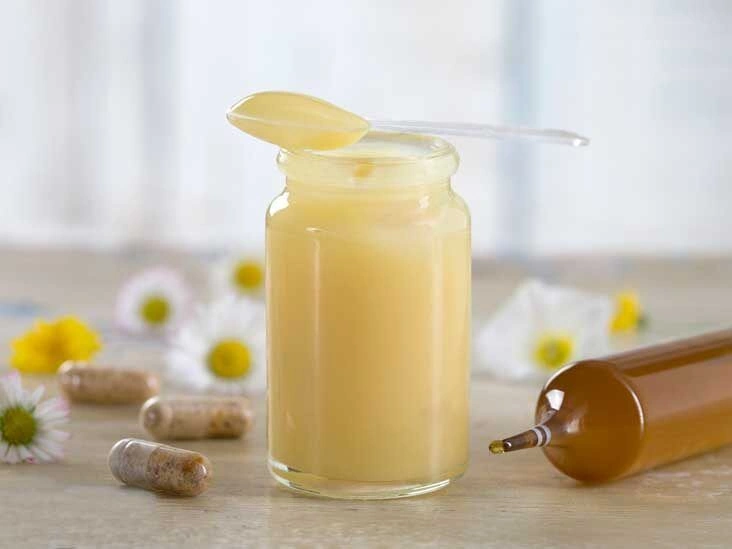

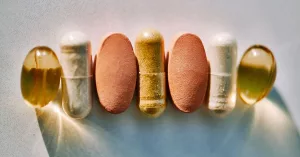
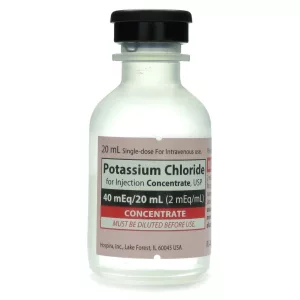

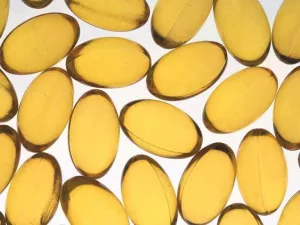


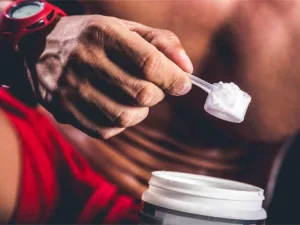
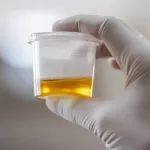

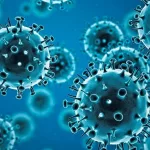



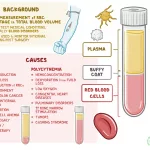








Leave a Reply
You must be logged in to post a comment.